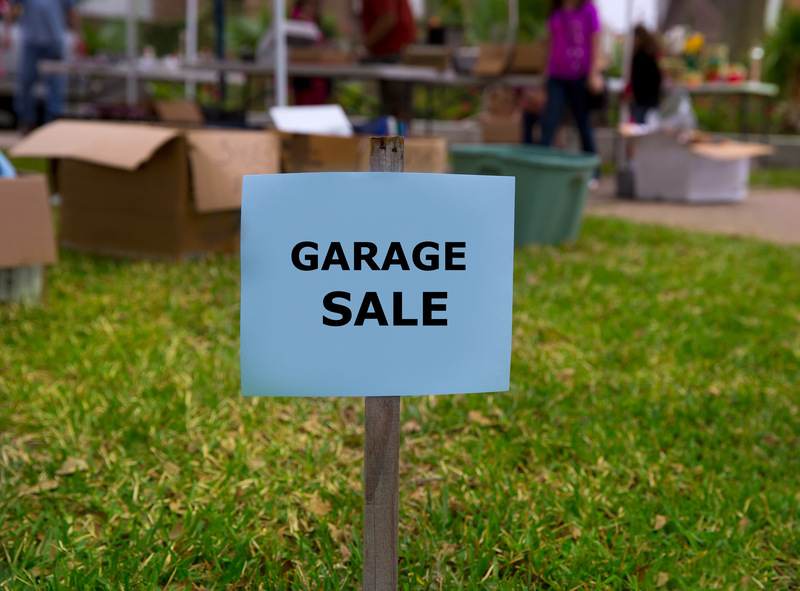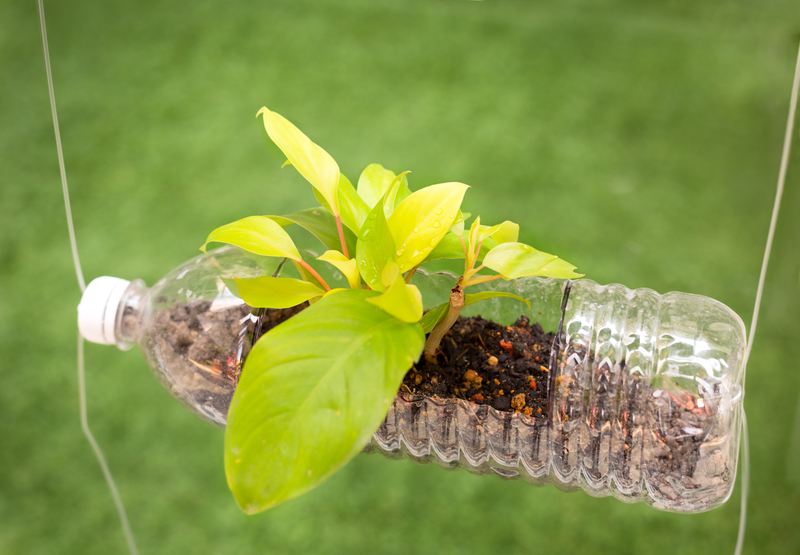Engaging Kids in Recycling: Tips for Parents
Posted on 14/06/2025
Engaging Kids in Recycling: Tips for Parents
Recycling is a vital aspect of creating a more sustainable future. Teaching the importance of recycling to children at an early age can positively influence their attitudes toward the environment and inspire lifelong green habits. As a parent, you play a crucial role in motivating your children to recycle and make eco-aware choices. In this comprehensive guide, we'll share fun, accessible, and practical tips for successfully engaging kids in recycling. You'll discover creative strategies, age-appropriate activities, and engaging conversations to empower your family toward a greener lifestyle.
Why Teach Children About Recycling?
Kids are the future stewards of our planet. When we expose them to sustainable practices early, we nurture a sense of responsibility and respect for the environment. Here are a few reasons why involving your children in recycling matters:
- Cultivates eco-conscious habits: Children learn by example and repetition. Daily recycling fosters awareness they'll carry into adulthood.
- Develops critical thinking: Sorting items and understanding recycling processes help kids enhance problem-solving and decision-making skills.
- Makes science fun: Learning about resources, materials, and the journey of recyclables provides interesting, hands-on educational experiences.
- Strengthens family bonds: Collaborative recycling activities can become fun family traditions that unify the household around a meaningful cause.
- Inspires change: Kids who love recycling often influence their peers, creating a ripple effect of sustainability in their schools and communities.

How to Start: Introducing Recycling Concepts
Engaging children in recycling starts with clear, age-appropriate explanations. Begin with the basics, tailored to your child's developmental stage:
Explain Why Recycling Matters
- Use simple language and real-world examples, such as pointing out how recycling household items saves energy and natural resources.
- Highlight problems with waste, like pollution or overflowing landfills.
- Connect recycling to issues kids care about (animals, clean parks, and oceans).
Show, Don't Just Tell
- Take a walk to see litter or visit your local recycling center together.
- Let kids observe the differences between trash, recycling, and compost bins at home or in public spaces.
- Allow your child to help rinse out and sort recyclables, explaining what belongs in each bin.
Use Books and Educational Videos
- Read eco-themed children's books that emphasize sustainability and recycling.
- Watch animated videos or documentaries that demonstrate the recycling process from start to finish.
Creating a Family Recycling System
Making recycling a family priority encourages kids to participate. Design a system that's easy and enjoyable for every family member:
Set Up Kid-Friendly Recycling Stations
- Place bins at accessible heights and locations so kids can easily reach them.
- Use visual aids: label bins with colorful pictures or stickers representing paper, plastic, metal, and glass to help non-readers or younger children.
- Let kids decorate the bins with their own creative touches. This gives them ownership and pride in their role.
Establish Clear Routines
- Integrate recycling into daily and weekly household chores, such as sorting after dinner or on cleanup days.
- Create a family recycling chart that tracks who's responsible for what and celebrates recycling milestones.
- Remind kids by setting a calendar alert or using a fun song while sorting.
Lead by Example
- Show enthusiasm when discussing and practicing recycling at home.
- Consistently sort your own recyclables and explain your choices aloud.
- Share reasons why you chose certain products (like items in recyclable packaging), emphasizing conscious consumer decisions.
Fun and Educational Recycling Activities for Kids
Keep your kids motivated and engaged with recycling by incorporating hands-on, playful activities that combine learning and fun:
Sorting Games
- Turn recycling into a race: see who can sort items fastest and most accurately.
- Create a matching game with cards showing different items and their recycling destination.
- Play Recycling Bingo by filling in squares for every correctly sorted item throughout the week.
Recycling Science Experiments
- Test which materials float or sink in water, and discuss why some materials are easier to recycle than others.
- Try a composting project by keeping a mini bin for kitchen scraps and observing how food breaks down.
- Compare how many plastic bottles or cans your family collects in a month, then research their recycling process online.
Creative Upcycling Projects
- Transform empty containers into flower pots, bird feeders, or art projects.
- Host a recycled art contest to see who can build the best sculpture or craft from household waste.
- Make homemade paper from old scraps to teach about reusing materials.
Recycling Challenges and Rewards
- Set family goals, such as reducing landfill waste by a certain percentage each month.
- Offer simple incentives for consistent recycling habits, like choosing a family outing or movie night.
- Track progress on a visible chart or sticker board for a rewarding sense of achievement.
Making Recycling Meaningful: Discussing Environmental Impact
For older kids, discussing real-world impacts of recycling can deepen their appreciation and commitment:
- Share local and global recycling statistics. Help children understand the difference they make and connect their efforts to a larger community.
- Discuss the journey of recyclables. Teach them what happens after recycling trucks pick up your bins, including the separation, processing, and creation of new products.
- Explore issues like plastic pollution together. Watch documentaries, read newspaper articles, or conduct simple research projects to see how small changes help beat global challenges.
- Encourage advocacy. Older children and teens might enjoy creating posters, presentations, or social media posts encouraging friends and classmates to join in.
Overcoming Common Recycling Challenges with Kids
Parents often encounter hurdles when trying to instill new habits. Here's how to handle some common obstacles to effective recycling with kids:
"It's Too Complicated!"
- Simplify the rules. Use clear, simple instructions. Focus on the basics first (plastic bottles, cans, and paper), then gradually introduce more details.
- Visual guides are your friend. Post pictures above bins as reminders.
Lack of Motivation
- Keep it positive. Praise effort, not just results. Celebrate improvement, not perfection.
- Make it a game or competition. Friendly rivalry boosts engagement and helps create new habits.
Inconsistent Participation
- Be patient and persistent. Habits take time to develop. Reinforce routines at the same time each day or week.
- Involve the whole family. When everyone participates, kids are more likely to stay the course.
Expanding Environmental Awareness Beyond the Home
Recycling is only one part of the solution. As your kids grow comfortable with recycling, encourage broader eco-friendly behaviors:
- Practice reducing and reusing. Explain that the best way to tackle waste is not to produce it in the first place. Use reusable containers and bags, and choose products with minimal packaging.
- Get involved at school. Encourage your child to join (or start) recycling initiatives or green clubs. Volunteer for classroom recycling programs or school garden projects.
- Participate in community cleanups. Join local events that promote environmental stewardship, such as tree plantings or river cleanups.
- Take field trips. Visit recycling or waste management centers, nature preserves, or eco-themed museums to reinforce and expand your child's real-world experience.
- Support eco-friendly organizations. Attend family workshops, webinars, or events organized by environmental non-profits.

Tips for Parents: Making Recycling a Lasting Family Habit
Consistency, communication, and fun are key to nurturing environmentally responsible children and transforming recycling into a lifelong habit.
Keep Learning Together
- Stay up to date on local recycling guidelines--they often change as new technologies and markets emerge.
- Read books and watch nature documentaries as a family.
- Explore new ways to reduce waste, such as composting or making your own cleaning products.
Encourage Open Conversations
- Ask your kids what they think about recycling and environmental protection.
- Listen to their concerns and respect their ideas, even if they're not perfect. Problem-solve together.
- Discuss the ethical side of caring for our planet and respecting natural resources.
Be a Role Model
- Show excitement and commitment in your own eco-friendly actions.
- Share when you make sustainable choices, like using public transport, buying second-hand, or gardening.
- Encourage extended family and friends to participate in your recycling efforts.
Conclusion: Inspiring Future Earth Heroes
Engaging your kids in recycling doesn't have to be a chore--it can be a joyful, rewarding journey for the whole family. By fostering a spirit of curiosity, providing creative opportunities to practice recycling, and communicating the deeper meaning behind these actions, you equip your children with the tools and passion to protect our planet for generations to come. Start simple, stay positive, and watch your children become proud champions of sustainability!
Remember: Every recycling habit you build together today helps create a cleaner, healthier world tomorrow.
Latest Posts
Mini Skips Uncovered: The Basics
Steering Clear of Harmful Plastics: What You Need to Know
Maximize Your Recycling at Home with Simple Suggestions
Breathe New Life into Style: Smart Clothes Recycling Solutions







